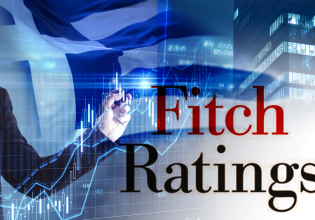HSBC: Tourism will affect Greek GDP by 422 points by 2022
With tourism accounting for more than 20% of the Greek economy, the recovery expected this year will give a significant boost to GDP. This emerges from the report of the British bank HSBC in relation to the prospects for tourism this year.
With tourism accounting for more than 20% of the Greek economy, the recovery expected this year will give a significant boost to GDP. This emerges from the report of the British bank HSBC in relation to the prospects for tourism this year.
The beaches have opened and everything shows that Europeans will enjoy a much better tourist season this year compared to 2020, HSBC points out. This will lead to a gradual recovery of tourism from June, according to HSBC.
Foreign tourist arrivals will reach about 50% of levels before the pandemic in the third quarter. After that, the recovery will be stable, with the result that the tourism industry will have returned to previous levels by the end of 2022. The recovery will be somewhat faster for Italy and Portugal than for Greece or Spain, HSBC points out.
In practice, this means that since tourism last year deducted 6 percentage points from the growth rates of Greece, this year it will add 2 percentage points. The positive impact of tourism on Greek development in 2022 is estimated at 4 percentage points.
The evolution of vaccinations is crucial
Arrivals of tourists from northern European countries to the south this year will largely depend on the evolution of vaccination programs. According to the bank report, given that vaccinated tourists will have a great deal of travel freedom, it is crucial to look at how vaccinations work in Britain and Germany. He predicts that by mid-July, half of adults in Germany and two-thirds in Britain will have been vaccinated. Older people will be able to travel freely first, as in Britain, for example, only a small proportion of those under 40 have been given the first dose. In fact, Britain is giving the second dose after three months. So those Britons taking the first dose today will need to have a coronavirus test before going on holiday if they plan to travel before the end of August.
In all tourism-dependent economies, including Greece, Great Britain and Germany are two of the top three sources of tourist arrivals. For most countries, the tourist season begins at Easter, however the biggest tourist flows are observed in July and August, with Greece having the greatest seasonality.
The high cost of testing may be a deterrent to the recovery of tourism, according to the report. Indicatively, an unvaccinated family of four Britons who want to travel to Greece this summer (even if Greece is finally included in the “green list” of Britain), will have to pay 1,024 pounds only for the tests. This is because Greece requires that tourists who visit the country must present for each family member over 5 years a negative test that was done 72 hours before the departure. According to British rules, all members must take a rapid test before returning, as well as a molecular test in the first two days after returning. The average price of a molecular test in Britain is 128 pounds. So, even without taking into account the rapid pre-return test, HSBC estimates that the two tests for each family member will cost over 1,000 pounds.
On the other hand, there are positive expectations, as TUI offers its customers a package of 60 pounds with all the required tests. This reduces the cost to 240 pounds for a family of four.
- Αλληλοκατηγορίες Μεγάρου Μαξίμου – Χαριλάου Τρικούπη με το βλέμμα σε οικονομία και υγεία
- Στην «κόλαση» του Τέγκελ – Πρώην αεροδρόμιο στο Βερολίνο, νυν μεγαλύτερος προσφυγικός καταυλισμός στην Ευρώπη
- «Όμορφος κόσμος, ηθικός»…. τρομακτικά πλασμένος
- Τώρα ξεκινούν τα δύσκολα για το ΠΑΣΟΚ – Η μεγάλη ευθύνη
- Σταρ του OnlyFans ξαναχτυπά: «Θέλω να πάω με 950 άντρες μέσα σε μια ημέρα και να σπάσω το ρεκόρ»
- Ο πραγματικός Ρωμαίος αυτοκράτορας που υποδύεται ο Ντένζελ Ουάσινγκτον στο γεμάτο ανακρίβειες «Μονομάχο 2»











